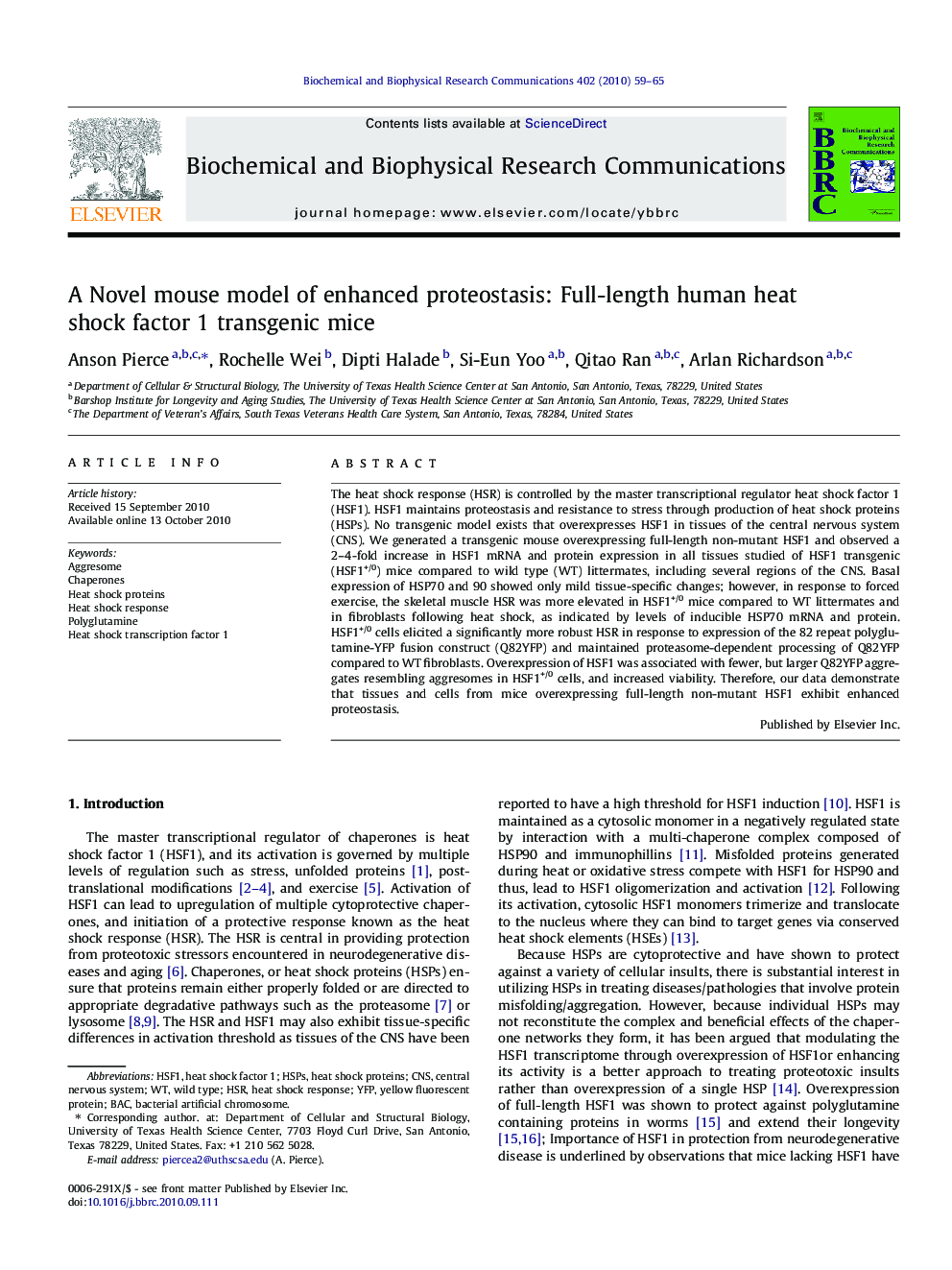| Article ID | Journal | Published Year | Pages | File Type |
|---|---|---|---|---|
| 1930988 | Biochemical and Biophysical Research Communications | 2010 | 7 Pages |
The heat shock response (HSR) is controlled by the master transcriptional regulator heat shock factor 1 (HSF1). HSF1 maintains proteostasis and resistance to stress through production of heat shock proteins (HSPs). No transgenic model exists that overexpresses HSF1 in tissues of the central nervous system (CNS). We generated a transgenic mouse overexpressing full-length non-mutant HSF1 and observed a 2–4-fold increase in HSF1 mRNA and protein expression in all tissues studied of HSF1 transgenic (HSF1+/0) mice compared to wild type (WT) littermates, including several regions of the CNS. Basal expression of HSP70 and 90 showed only mild tissue-specific changes; however, in response to forced exercise, the skeletal muscle HSR was more elevated in HSF1+/0 mice compared to WT littermates and in fibroblasts following heat shock, as indicated by levels of inducible HSP70 mRNA and protein. HSF1+/0 cells elicited a significantly more robust HSR in response to expression of the 82 repeat polyglutamine-YFP fusion construct (Q82YFP) and maintained proteasome-dependent processing of Q82YFP compared to WT fibroblasts. Overexpression of HSF1 was associated with fewer, but larger Q82YFP aggregates resembling aggresomes in HSF1+/0 cells, and increased viability. Therefore, our data demonstrate that tissues and cells from mice overexpressing full-length non-mutant HSF1 exhibit enhanced proteostasis.
Research highlights► Development of mouse overexpressing native human HSF1 in all tissues including CNS. ► HSF1 overexpression enhances heat shock response at whole-animal and cellular level. ► HSF1 overexpression protects from polyglutamine toxicity and favors aggresomes. ► HSF1 overexpression enhances proteostasis at the whole-animal and cellular level.
